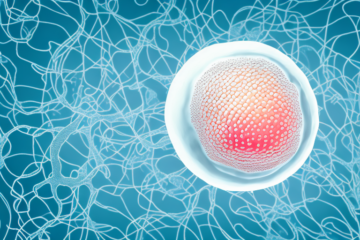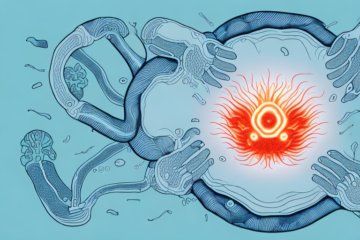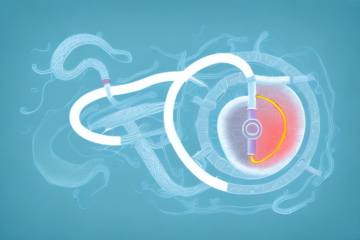Gastritis is a common medical condition that is characterized by inflammation of the lining of the stomach. This inflammation is caused by damage to the stomach lining, which can be due to a variety of factors such as bacterial infections, excessive use of nonsteroidal anti-inflammatory drugs (NSAIDs), alcohol abuse, and stress.
What is gastritis? Understanding the condition
Gastritis is a medical condition that occurs when the lining of the stomach becomes inflamed or swollen. The inflammation can injure the cells that produce the stomach’s protective mucus layer, leading to the development of an ulcer or other complications. There are two types of gastritis: acute and chronic. Acute gastritis comes on suddenly and typically lasts for a few days, while chronic gastritis develops slowly and can last for several years.
Some common causes of gastritis include excessive alcohol consumption, prolonged use of nonsteroidal anti-inflammatory drugs (NSAIDs), bacterial infections such as Helicobacter pylori, and stress. Symptoms of gastritis can include abdominal pain, nausea, vomiting, bloating, and loss of appetite.
Treatment for gastritis depends on the underlying cause and severity of the condition. In some cases, lifestyle changes such as avoiding alcohol and spicy foods, and taking antacids or acid-reducing medications may be enough to alleviate symptoms. However, if the gastritis is caused by an infection, antibiotics may be necessary. It is important to seek medical attention if you experience persistent or severe symptoms of gastritis, as untreated gastritis can lead to complications such as bleeding or stomach ulcers.
Causes of gastritis: Identifying the triggers
Some of the common causes of gastritis include bacterial infections such as H. pylori, excessive use of medications like NSAIDs, alcohol abuse, and chronic stress. Other factors that may contribute to the development of gastritis include smoking, autoimmune disorders, and some medical procedures such as radiation therapy or surgery.
It is important to note that certain foods can also trigger gastritis symptoms. Spicy, acidic, and fried foods are known to irritate the stomach lining and worsen gastritis symptoms. Additionally, consuming large meals or eating too quickly can also contribute to the development of gastritis.
Prevention of gastritis involves avoiding triggers and making lifestyle changes. Quitting smoking, reducing alcohol consumption, and managing stress levels can all help prevent gastritis. Eating smaller, more frequent meals and avoiding trigger foods can also help manage symptoms. In some cases, medication may be prescribed to reduce inflammation and treat underlying infections.
Symptoms of gastritis: Recognizing the warning signs
The symptoms of gastritis can vary depending on the type and severity of the condition. Some of the common symptoms include abdominal pain, nausea, vomiting, indigestion, bloating, and loss of appetite. In severe cases, gastritis may cause bleeding from the stomach, which can lead to black stools and vomiting of blood.
It is important to note that some people with gastritis may not experience any symptoms at all. This is known as asymptomatic gastritis and can only be diagnosed through an endoscopy or biopsy. Additionally, certain lifestyle factors such as excessive alcohol consumption, smoking, and stress can increase the risk of developing gastritis. It is important to speak with a healthcare provider if you are experiencing any symptoms or have concerns about your risk for gastritis.
Types of gastritis: Acute and Chronic
Acute gastritis is a sudden and often short-lived inflammation of the stomach lining. It is usually caused by infection or the use of certain medications. Chronic gastritis, on the other hand, is a long-term inflammation of the stomach lining that can result in erosion of the lining and eventually lead to ulcers. Chronic gastritis is usually associated with H. pylori infection or autoimmune disorders.
There are several risk factors that can increase the likelihood of developing gastritis. These include excessive alcohol consumption, smoking, stress, and a diet high in spicy or acidic foods. Additionally, certain medical conditions such as Crohn’s disease and HIV can also increase the risk of developing gastritis.
The symptoms of gastritis can vary depending on the type and severity of the condition. Common symptoms include nausea, vomiting, abdominal pain, bloating, and loss of appetite. In severe cases, gastritis can lead to complications such as bleeding, perforation of the stomach lining, and an increased risk of stomach cancer.
Diagnosing gastritis: Tests and procedures used
Diagnosing gastritis usually involves a physical exam, a review of medical history, and one or more tests such as blood tests, stool tests, endoscopy, or biopsy. Endoscopy is a procedure in which a small camera is inserted into the stomach through the mouth to visualize the stomach lining. A biopsy may also be taken during endoscopy to check for infection or other abnormalities.
In addition to these tests, a breath test may also be used to diagnose gastritis caused by the bacteria Helicobacter pylori. This test involves drinking a solution containing a small amount of radioactive carbon and then breathing into a bag. The breath sample is then analyzed to determine if the bacteria is present in the stomach.
Treating gastritis: Medications and lifestyle changes
Treatment for gastritis depends on the underlying cause of the condition. For example, if the gastritis is caused by an H. pylori infection, antibiotics are usually prescribed to eliminate the bacteria. Medications such as proton pump inhibitors or H2 blockers may also be used to reduce acid production and promote healing of the stomach lining. Avoiding triggers such as alcohol and certain medications, modifying diet, and reducing stress can also help prevent or manage symptoms of gastritis.
In addition to medication and lifestyle changes, there are also natural remedies that may help alleviate symptoms of gastritis. These include drinking chamomile tea, consuming ginger, and taking probiotics to promote healthy gut bacteria. However, it is important to consult with a healthcare provider before trying any new remedies.
If left untreated, gastritis can lead to more serious complications such as stomach ulcers or even stomach cancer. It is important to seek medical attention if symptoms persist or worsen despite treatment, or if there is vomiting blood or black, tarry stools.
Home remedies for gastritis: Natural ways to ease symptoms
Some home remedies may help ease symptoms of gastritis. These may include drinking chamomile tea, eating ginger or garlic, and avoiding spicy or fatty foods. It is important to note that home remedies should not be used as a substitute for medical treatment prescribed by a healthcare professional.
In addition to the aforementioned remedies, there are other natural ways to ease symptoms of gastritis. One such remedy is consuming probiotics, which can help restore the balance of good bacteria in the gut. Another option is drinking aloe vera juice, which has anti-inflammatory properties that can soothe the stomach lining.
It is also important to make lifestyle changes to manage gastritis symptoms. This may include quitting smoking, reducing stress levels, and getting enough sleep. Regular exercise can also help improve digestion and reduce inflammation in the body.
Diet recommendations for gastritis patients
Diet is an essential aspect of managing gastritis. Patients are encouraged to eat smaller meals more frequently and avoid foods and beverages that may irritate the stomach lining, such as spicy or fatty foods, caffeine, and alcohol. Patients may also benefit from a diet rich in fruits, vegetables, whole grains, lean protein, and fermented foods such as yogurt or kimchi.
In addition to dietary changes, it is important for gastritis patients to manage stress levels as stress can exacerbate symptoms. Practicing relaxation techniques such as deep breathing, meditation, or yoga can be helpful. It is also recommended to avoid smoking and to maintain a healthy weight through regular exercise.
Complications of untreated gastritis: Risks and dangers
Untreated gastritis can lead to serious complications such as bleeding, ulcers, and stomach cancer. It is important to seek medical treatment if symptoms persist or worsen.
One of the most common complications of untreated gastritis is the development of peptic ulcers. These are open sores that form in the lining of the stomach or small intestine, and they can cause severe pain and discomfort. In some cases, peptic ulcers can also lead to internal bleeding, which can be life-threatening if left untreated.
Another potential complication of untreated gastritis is an increased risk of developing stomach cancer. Chronic inflammation of the stomach lining can damage the cells and increase the likelihood of cancerous growths. It is important to note that not all cases of gastritis will lead to cancer, but the risk is higher in those who have untreated or chronic gastritis.
Prevention of gastritis: Tips to avoid developing the condition
Preventing gastritis involves avoiding triggers such as excessive alcohol consumption, cigarette smoking, and long-term use of certain medications. It is also essential to maintain a healthy diet and manage stress effectively to prevent the development of gastritis.
In addition to avoiding triggers and maintaining a healthy lifestyle, there are other steps you can take to prevent gastritis. One of the most important is to practice good hygiene, especially when it comes to food preparation. Make sure to wash your hands thoroughly before handling food, and cook all meats and eggs thoroughly to avoid bacterial contamination.
Another way to prevent gastritis is to stay hydrated. Drinking plenty of water and other fluids can help keep your stomach lining healthy and reduce the risk of inflammation. Additionally, it is important to avoid eating large meals late at night, as this can increase the risk of acid reflux and other digestive issues that can contribute to gastritis.
Gastritis and stress: Understanding the connection
Stress can be a significant factor in the development of gastritis. Research has found that chronic stress can lead to increased acid production in the stomach, which can result in inflammation and damage to the stomach lining. Managing stress through techniques such as mindfulness, meditation, and exercise may help prevent or alleviate symptoms of gastritis.
In addition to stress, certain medications and lifestyle factors can also contribute to the development of gastritis. Nonsteroidal anti-inflammatory drugs (NSAIDs) such as aspirin and ibuprofen can irritate the stomach lining and increase the risk of gastritis. Heavy alcohol consumption, smoking, and a diet high in spicy or acidic foods can also worsen symptoms of gastritis. It is important to speak with a healthcare provider if you are experiencing symptoms of gastritis, as they can provide guidance on proper treatment and management.
Gastritis and diet: Foods to avoid and include in your meals
Diet plays a crucial role in the development and management of gastritis. Patients are encouraged to avoid foods and beverages that may trigger symptoms such as spicy or fatty foods, caffeine, and alcohol. Instead, patients should aim to eat a more balanced diet rich in fruits, vegetables, whole grains, lean protein, and fermented foods such as yogurt or kimchi.
In addition to avoiding trigger foods, it is important for patients with gastritis to eat smaller, more frequent meals throughout the day. This can help to reduce inflammation and discomfort in the stomach. It is also recommended to drink plenty of water and avoid carbonated beverages, which can irritate the stomach lining.
Some studies have suggested that certain foods may have anti-inflammatory properties and could be beneficial for patients with gastritis. These include foods high in omega-3 fatty acids, such as salmon and walnuts, as well as foods rich in antioxidants, such as blueberries and spinach. However, more research is needed to fully understand the impact of these foods on gastritis.
Gastritis vs other gastrointestinal conditions: How to differentiate them
Gastritis can be differentiated from other gastrointestinal conditions such as gastroesophageal reflux disease (GERD) and peptic ulcer disease (PUD) based on symptoms and diagnostic tests. Endoscopy and biopsy may help determine the underlying cause of symptoms and differentiate between these conditions.
GERD is characterized by heartburn, regurgitation, and difficulty swallowing. PUD, on the other hand, presents with abdominal pain, bloating, and nausea. Gastritis, on the other hand, is characterized by upper abdominal pain, nausea, vomiting, and loss of appetite. Diagnostic tests such as blood tests, stool tests, and imaging studies may also be used to differentiate between these conditions.
Living with gastritis: Coping mechanisms and support resources
Living with gastritis can be challenging, but there are many coping mechanisms and support resources available. Patients are encouraged to seek support from family and friends, work with their healthcare team to manage symptoms effectively, and adopt healthy lifestyle habits such as regular exercise and stress management techniques.
In addition to these strategies, there are also various medications that can help manage gastritis symptoms. These may include antacids, proton pump inhibitors, and H2 blockers. It is important to work with a healthcare provider to determine the best medication regimen for each individual case.










